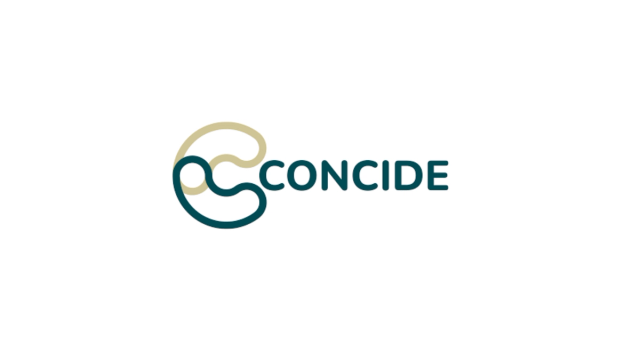Behind the Innovator: Mike Heinen, Customer Platform Operations, Cengage

Behind the Innovator: Mike Heinen, Customer Platform Operations, Cengage
Welcome to our new Q&A series: Behind the Innovator
Behind the Innovator takes a peek behind the scenes with learnings and best practices from leading architects, operators, and developers building cloud-native, data-driven applications with Cassandra and open source technologies in unprecedented times.
For our inaugural interview, we talked to Mike Heinen, the customer platform operations manager at Cengage, a leading education and technology company built for learners.
Here’s what he had to say.
1. Tell us about your background and what you do in your position.
I've been with Cengage for about 15 years. Cengage is the largest U.S.-based education and technology company for the college course materials market. In recent years, the company has undergone a major digital transformation to migrate from physical textbook learning to digital content creation. With this, in 2018 we launched the first subscription-style service for the college course materials market, Cengage Unlimited. It’s kind of like a Netflix for education where you're paying on a per-semester or per-year basis.
We've also been through the migration to the cloud as well. We're heavily invested into AWS.
Over the years, I’ve held various positions here—from Windows systems engineer to managing multiple teams over the last 10 or so years. My experience has been very focused on the database side, so that's where DataStax comes in. I’ve been very focused on database operations, database expertise, and now platform operations.
2. What are some of the accomplishments you’ve been able to achieve at Cengage?
Being on the operations side, my team and I manage all of our Apache Cassandra environments. Cassandra basically holds the keys to the kingdom here at Cengage. Many of our centralized applications run through Cassandra.
When I took over the team, there was minimal centralized management, and the stability of our Cassandra rings was a challenge.
Since I took over, we've done a lot of enhancements in regards to our stability (including moving to more stable Datastax versions and transparent monitoring) and gained a lot of trust within our app teams. I've also helped to develop a lot of confidence in my team that they can own, manage, and make decisions on their own -- before they were very hesitant to do so.
3. Could you tell us a little bit about some of those applications that are running on Cassandra?
We've got a large test question ingestion application. We also have our large content creation systems running through Cassandra. Content creation is going to be a huge thing moving forward. A lot of our centralized services are going to be based on that.
4. How has COVID-19 impacted online learning?
When COVID hit and everybody was forced to leave their institutions, Cengage was the first publisher to step up and say, "You know what? We're going to do whatever we can to help and to help you as the instructor."
Through Cengage Unlimited, which gives students unlimited access to the entire Cengage library of more than 22,000 digital products, we were able to support more than 300,00 students with free access to our digital course materials and for educators, we set up nearly 40,000 online courses for free.
Really our bread-and-butter is the back-to-school season each year, the beginning of the semester. We call it Rush, and as Rush happens, everybody comes in and starts utilizing our services. That's when we will find out whether or not there is going to be a huge increase in use of our technologies or whether students have chosen to stay home and basically do something different for the year, or whether it's a gap year or something else.
5. Has there been some adjustment with figuring out how many people are going to be utilizing the Unlimited subscription versus how many might in a “normal” year?
In previous years, you can almost track the selling and the usage of our systems on an annual basis where you can see a large increase on almost the exact same day every single year.
But we are starting to see an increase earlier as a result of some schools starting earlier, and so it is hard to determine how things will shake out this fall.
6. COVID has obviously thrown everyone a curveball. With your current projects going on, what are some key learnings and challenges you’ve experienced?
Our ops team has to work closely with our engineering teams in order to be successful and solve problems. When working through our issues that involve Cassandra tuning, we've found that it's key to be able to have test cases that fail quickly. It's very, very important; you can't make a change and then wait for the team to go through a two-hour load test cycle to see whether or not it's going to fail. We've found that this helps us to get through to resolutions and to run through test scenarios much more quickly.
We've also found that bringing in DataStax support and sometimes professional services has really allowed us to be able to get through these issues a lot sooner. They've been fantastic partners for us. We always get valuable, helpful expertise from the people that get assigned to our account.
7. Was there anything else that bringing DataStax on board has really helped improve?
DataStax is not shy about telling us about which version of Cassandra would be the best for our certain situation. For example, teams have told us that the version that we were using has known bugs and is not stable, and that we needed to get upgraded as quickly as possible. We've been able to establish a lot of trust there.
We've also tried to establish our monitoring and get that all set up. That has allowed us to be in a good situation and to be able to see things happen before our application teams see it.
8. Do you have any advice for enterprises or developers that are trying to navigate today's software landscape? What are some things that you've learned that you think would be helpful to others that are just getting started on their journey?
Unfortunately, managing IT in today’s world is complicated. The software landscape is big and it's changing all the time. We're constantly trying to come up with our corporate standards to architect against this changing landscape.
We've found that having a partner to lean on is really helpful in balancing what the next shiny thing down the road is versus known stability. That's been extremely helpful.
As for other advice: Having operations working closely with the software dev teams to come to a common goal has been extremely helpful for us.
9. Looking ahead, what's your vision for your projects? What, going forward, do you hope to achieve? What would you like to be able to do?
We want to establish Cassandra as a platform, as a service (PaaS), and to be able to have all of the instrumentation in place so that we see stresses and issues with our systems before application teams start to see it within their applications. We want to be able to have a clear delineation of... when I see this, it means this, and how do I fix it? How do I fix it, tune against it, or see whatever I need to do from the operations side?
We're starting to investigate Cassandra on Kubernetes, running DataStax on Kubernetes.
There are a couple of things from the infrastructure side, but Cassandra's going to continue to be a big player at Cengage. It’s starting to get a lot of support internally, so we want to make it as a valued enterprise resource.




